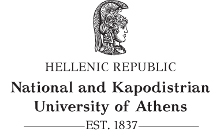School of Economics and Political Sciences
Department of Political Science and Public Administration
STAVROULA-ELENI CHRISTOFILOPOULOU
Doctoral Dissertation in progress
«The motherhood penalty in Greece. An analysis of work- life balance policies»
Commencement date: January 16, 2024
Abstract
During the past years academic discourse on the barriers and limitations that mothers face when (re) entering the labour market has been intensified. There is an escalation of the terms used to describe these barriers, with “motherhood penalty” being the most prominent one. The "motherhood penalty" refers to the loss of life-cycle income experienced by mothers due to under-employment and career setbacks they face.
Given the above, this doctoral dissertation examines two main working hypotheses:
The first is that the "motherhood penalty" is implicitly included in the EU and Greek policy agendas through work- life balance policies. EU work-life balance policy seems to make a gradual shift. It now aims not only to enhance female employment rates, but to strengthen women’s and especially mothers’ position in both work and personal life. The issue of reconciling work and personal life now constitutes a social right and is also used as a legislative and financial tool in EU policy (Directive on work-life balance for parents and carers, Directive on pay transparency measures, EU Gender Equality Strategy 2020-2025)
The second working hypothesis is that regarding work- life balance and mothers’ employment policies in Greece, Europeanisation has served as a catalyst and as a catalyst leading to policies that are more favourable to mothers. More specifically, it seems that a process of policy learning and transfer has contributed to convergence with the European acquis. However, it appears that no serious change has been achieved regarding gender stereotypes, and that the structural problems of the Greek labour market that prevent mothers' access, still remain unaffected.
